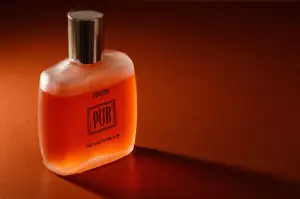Peppermint Oil: An Effective Mouse Repellent for Your Home?

Peppermint oil has gained popularity as a natural alternative for pest control, particularly in repelling mice. This essential oil is derived from the peppermint plant, known for its strong and refreshing scent. Unlike chemical-based repellents, peppermint oil offers a non-toxic solution to keep rodents at bay. Its effectiveness in deterring mice without harming them or the environment makes it an appealing choice for those seeking eco-friendly pest control options.
Scientific Basis: How Peppermint Oil Works as a Mouse Repellent
Scientific studies have shown that peppermint oil contains compounds such as menthol and limonene, which have strong repellent properties against rodents like mice. These compounds create a strong scent that is pleasant to humans but overwhelming for mice. When mice inhale the scent of peppermint oil, it can irritate their nasal passages and interfere with their ability to smell food sources, making the environment less attractive to them. Additionally, the intense aroma of peppermint oil can disrupt the pheromone trails that mice use to navigate, causing confusion and deterring them from entering or staying in treated areas.
Effectiveness of Peppermint Oil in Repelling Mice
Peppermint oil has shown promising results in repelling mice effectively. Studies have indicated that the strong scent of peppermint oil is a natural deterrent for rodents like mice. The potent smell overwhelms their sensitive olfactory systems, making them avoid areas where the scent is present. This makes peppermint oil a safe and non-toxic alternative to chemical-based repellents. Additionally, mice are known to dislike the menthol in peppermint oil, further contributing to its effectiveness in keeping them at bay.
Application Methods for Using Peppermint Oil to Deter Mice
When using peppermint oil to deter mice, it's essential to choose a high-quality, pure essential oil for maximum effectiveness. One common method is to soak cotton balls in peppermint oil and place them in areas where mice are likely to enter, such as near entry points or in cabinets. Refresh the cotton balls with more oil every few days to maintain the scent's potency. Alternatively, you can mix a few drops of peppermint oil with water in a spray bottle and mist it around your home, focusing on potential mouse entryways. Remember to reapply the spray regularly as the scent may dissipate over time. Additionally, consider using diffusers or ultrasonic devices that release peppermint oil into the air continuously for long-lasting protection against mice.
Considerations and Potential Limitations of Using Peppermint Oil for Pest Control
While peppermint oil is a natural and environmentally friendly option for repelling mice, it's important to note that its effectiveness may vary depending on the severity of the infestation and the specific species of mice present. Additionally, the scent of peppermint oil can dissipate over time, requiring frequent reapplication to maintain its repellent properties. Some studies suggest that mice can become accustomed to the smell of peppermint oil if used consistently, reducing its efficacy as a long-term solution. It's also essential to address any potential entry points or sources of food that may be attracting mice in conjunction with using peppermint oil for pest control.
In conclusion, peppermint oil has shown promising results as an effective natural mouse repellent. Its strong scent disrupts the rodents' sense of smell, making it difficult for them to navigate and locate food sources in treated areas. By using peppermint oil strategically and consistently, homeowners can potentially deter mice from entering their living spaces without relying on harmful chemicals or traps. While individual results may vary, incorporating peppermint oil into a comprehensive pest control strategy can be a safe and environmentally friendly way to keep mice at bay.
Published: 07. 05. 2024
Category: Home



